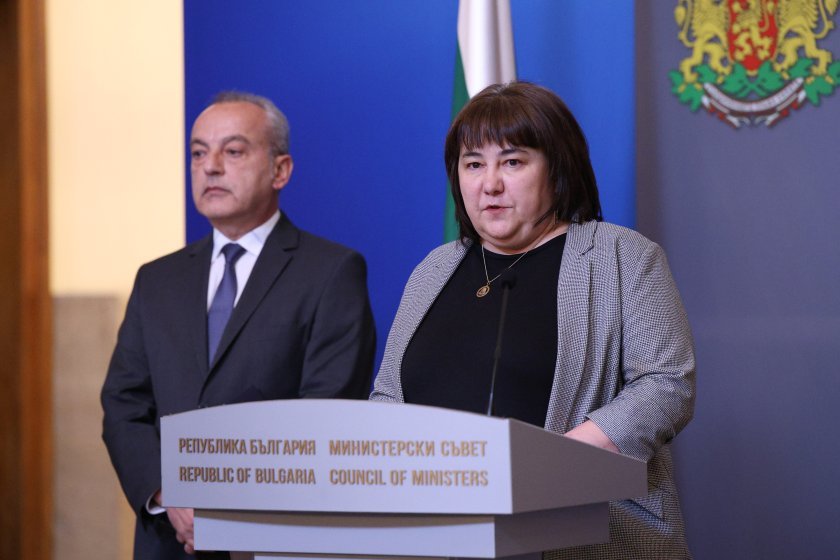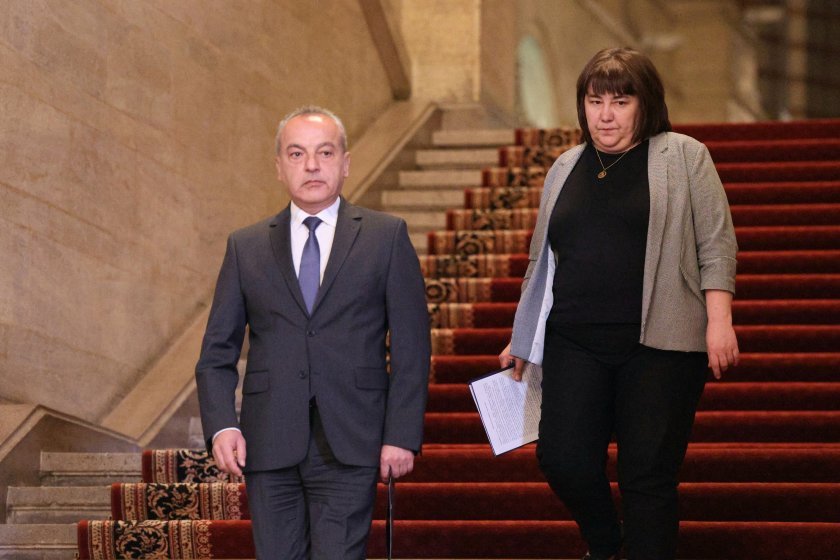The caretaker government proposes a draft state budget for 2023 with a deficit of 6.4% of GDP, which in nominal terms accounts for almost 12 billion BGN, caretaker Prime Minister Galab Donev and Finance Minister Rositsa Velkova told a briefing on April 21.
Donev explained that in recent months the caretaker government has presented the arguments on a draft budget with corresponding revenue and expenditure measures with a 3% deficit that would meet the criteria of the Stability and Growth Pact. In order to achieve such a deficit, the caretaker government has prepared changes in the tax legislation – restoring some of the reduced VAT rates; excess profit tax.
In order to achieve a lower deficit in a budget, there are two options - either cut spending or provide additional revenue. To achieve a budget deficit of 3%, the caretaker government has chosen the second option.
"This week, the two largest political coalitions, GERB-UDF and “We Continue the Change – Democratic Bulgaria”, discussed their views on Budget 2023. It was clear from what they said that they do not support the changes in tax legislation proposed by the caretaker government. Similar comments were expressed by the other parliamentary parties. With the clearly stated lack of parliamentary support for the changes to the tax legislation, tabling a 3% deficit budget in the National Assembly would be a foregone conclusion," the caretaker Prime Minister said.
Therefore, after preliminary discussions and analysis, the caretaker government decided to submit to the National Assembly a State Budget Law for 2023, developed on the basis of existing legislation shaped by the legislative changes of the 44th, 46th, 47th and 48th Legislatures. The proposed bill includes a deficit of 6.4% of GDP, which in nominal terms accounts for almost 12 billion BGN, Donev said.

Images by BGNES
Caretaker Finance Minister Rositsa Velkova added that the bill does not propose a change in tax policy. In this situation, new public debt amounting of BGN 13.7 billion needs to be incurred, which will bring the debt total to BGN 46.8 billion or 25.3% of GDP at the end of 2023.
The Ministry of Finance's macroeconomic forecast for the forecast period foresees a slowdown in GDP growth to 1.8% in 2023. GDP growth will accelerate to 3.3% in 2024.
The minimum size of the fiscal reserve as at 31 December 2023 is foreseen to remain unchanged compared to the level of BGN 4.5 billion set in the 2022 State Budget Act.
Based on the assumptions for the period 2023-2025, the level of government debt is projected to reach BGN 46.7 billion at the end of 2023, The government debt-to-GDP ratio of 22.5% at the end of 2021 declines to 21.8% at the end of 2022 and is expected to increase over the next three-year period to levels of 25.3% in 2023, 29.6% in 2024 and 33.0% at the end of 2025.
As a share of GDP, expenditure over the period 2023-2025 is 42.1% in 2023 and 2024 and 41.0% in 2025, respectively. They fall from 38.6% of GDP in 2023 to 36.1% of GDP in 2025.
Revenues are increasing in nominal terms over the whole three-year period. As a relative share of GDP they are 35.7% in 2023, 37.0% in 2024 and 36.4% in 2025.
Over the period 2023-2025, tax policy will be oriented towards maintaining the key priorities of improving revenue collection, preventing opportunities for evasion and non-payment of taxes and social contributions and reducing the administrative burden and costs for businesses and citizens.
The draft state budget for 2023 sets a 50% dividend for the state from state-owned companies and enterprises for 2023.
Regarding the income policy, the draft budget for 2023 reflects the increase in the minimum wage rate from 1 January 2023 - from BGN 710 to BGN 780, while the effects of the estimated minimum wage rate for 2024 and 2025 are calculated in an indicative amount, in accordance with Article 244 of the Labour Code.










 Чуй новините
Чуй новините Подкаст
Подкаст




















